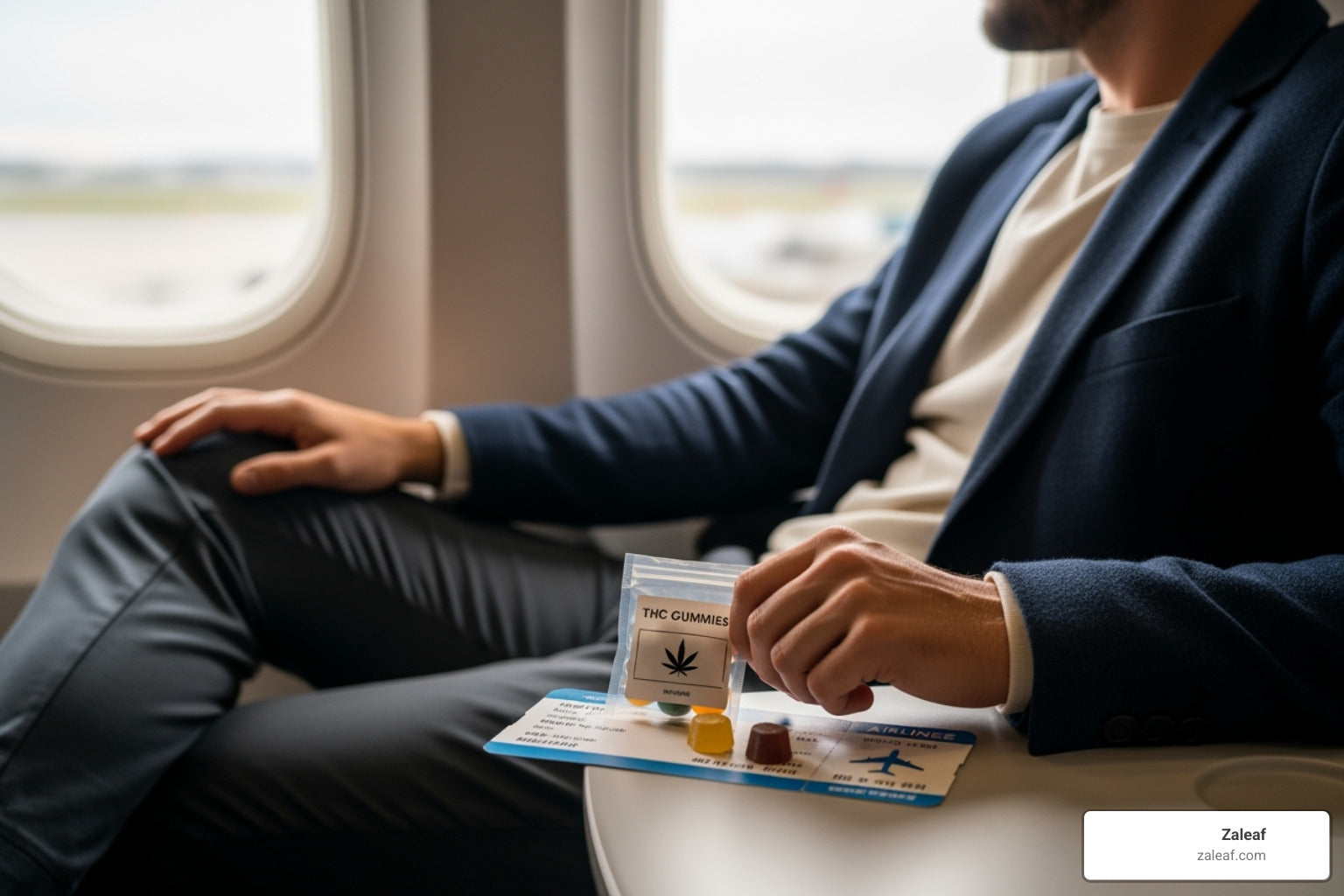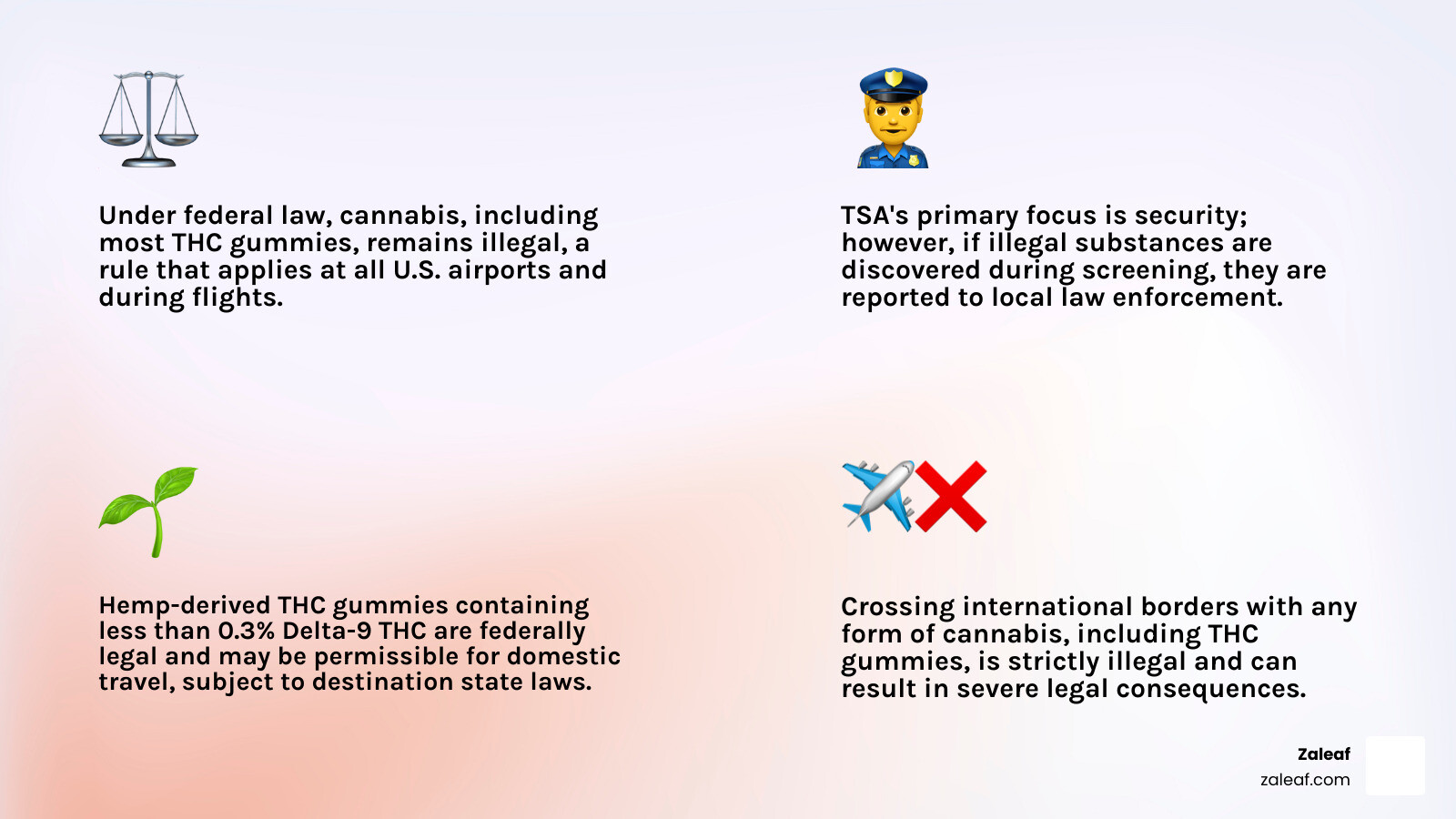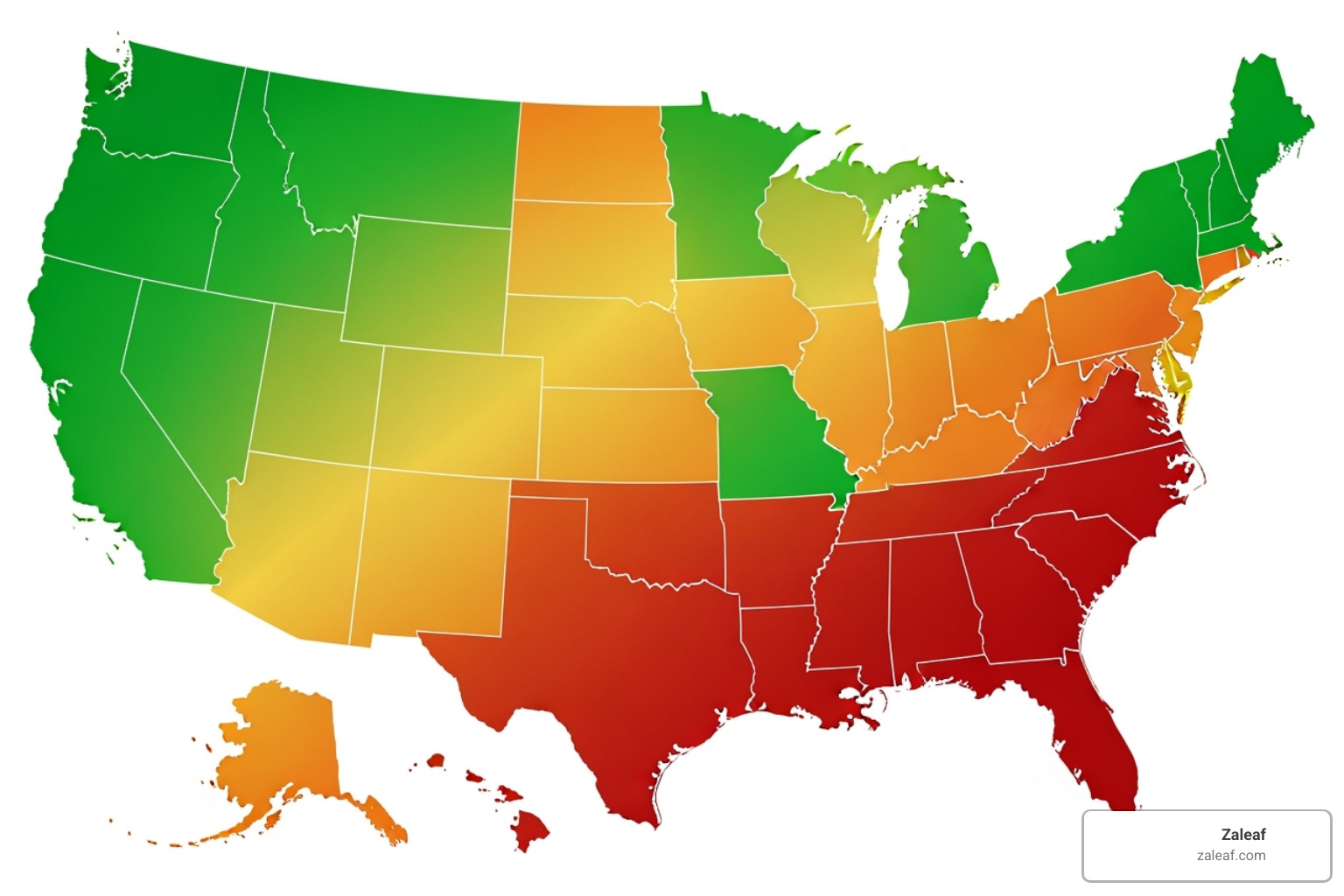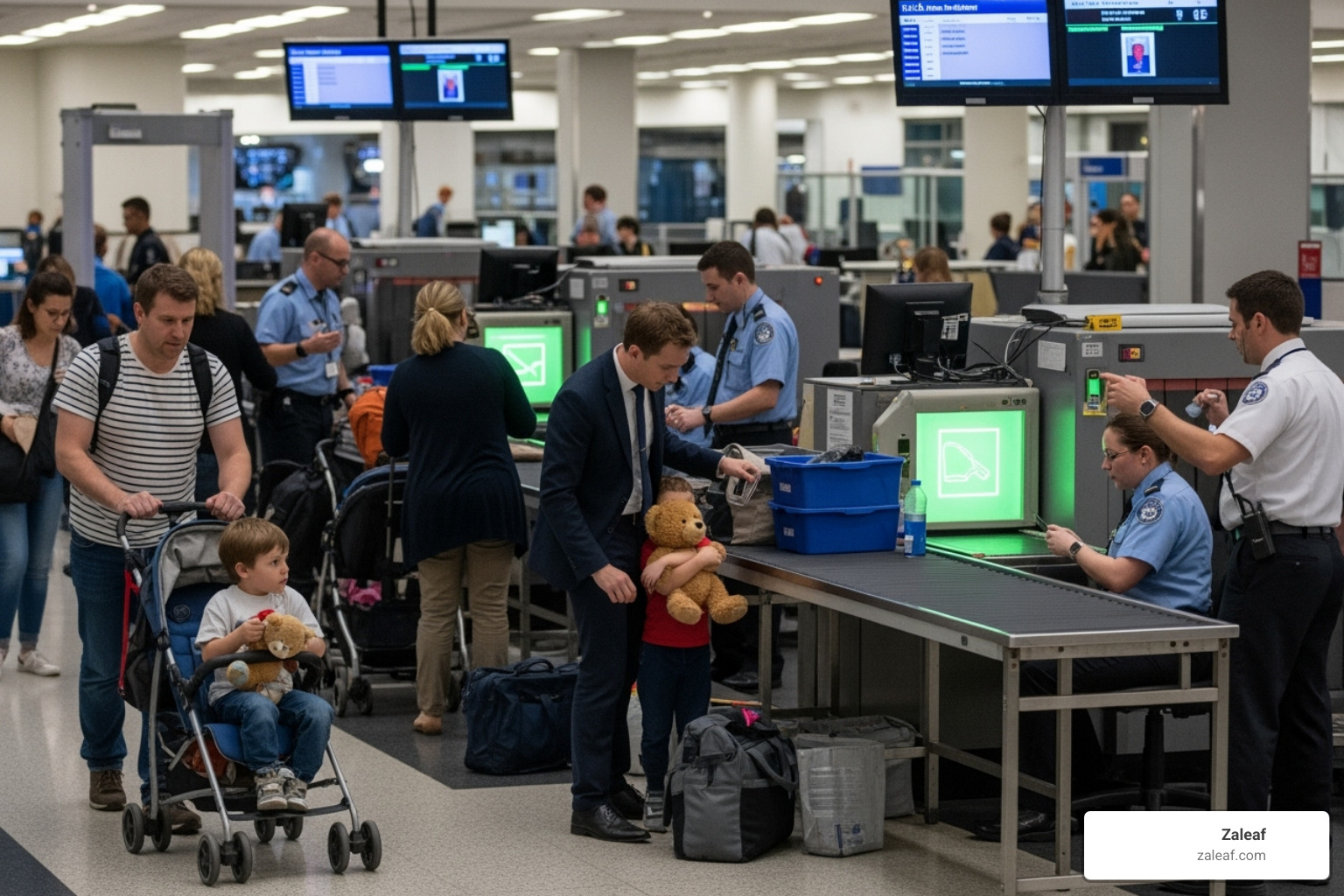Can You Fly with THC Gummies in 2025? Navigating TSA Rules

Navigating Air Travel with THC Gummies
Many travelers wonder if can you fly with THC gummies 2024. The short answer is: it's complicated. While cannabis laws vary widely by state, federal law governs all air travel within the United States. This creates a confusing situation for anyone considering flying with THC products.
Here's a quick overview of what you need to know:
- Federal Law: Cannabis (including most THC gummies) is illegal under federal law. This law applies at all airports and during flights.
- TSA Policy: The TSA (Transportation Security Administration) focuses on security threats, not searching for drugs. However, if they find illegal substances, they must report them to local law enforcement.
- Hemp-Derived THC: Gummies containing less than 0.3% Delta-9 THC (derived from hemp) are federally legal. These might be permissible for domestic travel, but discretion is key, and local laws at your destination still apply.
- International Travel: Taking any form of cannabis, including THC gummies, across international borders is illegal and can lead to severe penalties.
Understanding these rules is essential to avoid potential fines, confiscation, or legal trouble.
I'm Max Shemesh, CEO of Zaleaf. My background in the cannabinoid industry gives me deep insight into regulations like those surrounding whether can you fly with THC gummies 2024.

Relevant articles related to can you fly with THC gummies 2024:
Understanding the Core Regulations: Federal Law vs. State Law
When you're trying to figure out can you fly with THC gummies 2024 (or 2025, as we're looking ahead!), you quickly run into a tricky situation. It's like trying to steer a road with two different speed limits posted! On one hand, many states across the U.S. have acceptd cannabis, allowing it for medical or even recreational use. On the other hand, the federal government still views marijuana as a big no-no.

Under federal law, specifically the Controlled Substances Act, marijuana is still labeled a Schedule I drug. This means, in the eyes of Uncle Sam, it has no accepted medical use and a high potential for abuse. This federal stance creates a huge conflict, especially when you consider that airports are considered federal zones. So, even if you're in a state where cannabis is totally legal, those state laws don't apply the moment you step foot into airport security.
Now, here's where things get a bit more interesting! The 2018 Farm Bill was a game-changer. It legally separated hemp from marijuana. What does this mean for your gummies? Well, if a product is derived from hemp and contains no more than 0.3% Delta-9 THC on a dry weight basis, it's considered federally legal. This is a crucial distinction. Products exceeding this tiny 0.3% limit are still classified as marijuana and remain federally illegal. This is why understanding state-by-state differences is so important for travelers, as some states have their own rules even for hemp-derived products.
What is the legally permissible THC content for flying?
So, let's get down to the nitty-gritty: what kind of THC gummies might you be able to fly with domestically in 2025? It all comes back to that 0.3% Delta-9 THC dry weight limit from the 2018 Farm Bill.
If your THC gummies are hemp-derived and fall below that strict 0.3% Delta-9 THC threshold, they are considered federally legal. This is currently the only "safe" legal category for bringing THC products on a flight within the U.S. It's super important to know the difference between hemp-derived THC and marijuana-derived THC. While both contain THC, their legal status depends entirely on their source and that specific Delta-9 THC concentration. Marijuana-derived products almost always exceed that 0.3% limit, making them federally illegal.
And what about those popular Delta-8 gummies? Their legal status can be a bit of a gray area, even if they're hemp-derived. Some states have put specific bans on Delta-8, even if it meets the federal Delta-9 THC limit. This highlights why knowing both federal and state laws is key. We've got more details on these nuances. You can dive deeper into the topic with our articles: The Delta-8 Dilemma: Legal Status Explained and Are Delta-8 Gummies Legal? Clearing the Haze Around THC Treats.
How does federal law impact you at the airport?
This is where the rubber meets the road, or rather, where federal law meets your travel plans! The Transportation Security Administration (TSA) is a federal agency. This means that at the airport, they operate strictly under federal law. Period.
It doesn't matter if you're flying from sunny California (where cannabis is legal) to rocky Colorado (also legal). The moment you enter that airport security line, you're in a federal zone where state cannabis laws simply don't apply. This creates a big "gray area" for travelers, especially concerning products like hemp-derived gummies that are federally legal.
Here's the potential catch: even if your gummies are perfectly compliant (hemp-derived and under 0.3% Delta-9 THC), a TSA agent might not be trained to tell the difference between legal hemp and illegal marijuana. If they find something that looks suspicious during screening, they are obligated to refer the matter to local law enforcement. What happens next depends on where you are. In a cannabis-friendly state, local police might just ask you to toss them. But in other places, the consequences could be much more serious – think confiscation, fines, or even an arrest.
It's a truly complicated situation, kind of like trying to solve a puzzle with half the pieces missing! While compliant products can be flown domestically, you're always relying on the discretion and knowledge of individual officers. We at Zaleaf always recommend extreme caution and being prepared for any scenario.
TSA's Official Stance and Screening Procedures
Let's clear up a common question right away: the Transportation Security Administration (TSA) has one main job, and that's to keep our flights safe. Their focus is squarely on spotting threats to aviation security, like weapons, explosives, and other dangerous items. They are not actively looking for drugs. Think of them as security guards for the sky, not drug detectives.

However, this doesn't give you a free pass to pack anything and everything. If, during a routine security check, a TSA officer comes across something they suspect might be an illegal substance – including THC gummies that go over the federal limit – they are absolutely required to report it. Their policy is to hand the situation over to local law enforcement. It's then up to the airport police or local authorities to decide what happens next, based on the laws of that particular area. So, while TSA isn't searching for your gummies, they won't ignore them if found. You can always check the official TSA guidelines on medical marijuana for their stated policy.
What happens if TSA finds your THC gummies?
So, imagine this scenario: your bag glides through the X-ray machine at the security checkpoint, and suddenly, it stops. An officer points to your bag and asks for a closer look. This is where things get interesting if you're carrying THC gummies.
Here's a general idea of what might unfold:
- Detection: Your gummies might look like regular candies, which could get them past the initial X-ray. But sometimes, the organic material in edibles can look a bit suspicious on the screen, prompting a manual bag search. And yes, drug-sniffing dogs, trained to detect cannabis compounds, can also pick up on THC gummies, even if they're well-hidden.
- Referral: If a TSA officer finds what they believe are non-compliant THC gummies (meaning they likely exceed the 0.3% Delta-9 THC limit), they won't confiscate them themselves. Instead, they'll call in the local law enforcement authorities who work at the airport.
-
Local Law Enforcement Takes Over: This is the moment where the rules of the game truly change. The consequences you face will depend entirely on the laws of the state and even the specific city where that airport is located.
- If you're in a state where recreational cannabis is legal, you might simply be asked to dispose of the gummies. Some airports even have special "amnesty boxes" for this purpose.
- In a state where only medical cannabis is allowed, and you have a medical card, local law enforcement might be understanding. But remember, federal law still applies, so they aren't obligated to be lenient. You could still face confiscation or a fine.
- However, if you're in a state where cannabis is completely illegal, the situation can get much more serious. You could be looking at fines, misdemeanor charges, or even arrest, depending on how much you have and the local laws. We've seen travelers miss their flights because of these kinds of complications.
It's a bit like playing a game where the rules change halfway through, and you're always better off knowing all the rules beforehand!
Are medical THC gummies treated differently than recreational ones?
When it comes to flying, it's important to understand that the federal government makes no distinction between medical and recreational cannabis. This means that even if you have a perfectly valid medical marijuana card from your home state, it unfortunately doesn't offer any special protection or allowances at federal checkpoints like those run by the TSA. Federal law applies to everyone, regardless of their medical status.
The only exceptions TSA explicitly mentions are for cannabis-derived products that have been approved by the FDA. Currently, this is a very small list, mainly including drugs like Epidiolex (a CBD-based medication for seizures) and certain synthetic cannabis-related drugs such as Marinol and Syndros (both containing dronabinol) and Cesamet (nabilone). Unless your THC gummies fall into one of these very specific, FDA-approved categories, they are treated just like any other cannabis product under federal law.
So, while your medical card is a valuable shield in your home state, it essentially becomes a souvenir once you enter federal airspace.
Can You Fly with THC Gummies in 2025? A Domestic vs. International Breakdown
When you're wondering, can you fly with THC gummies 2024, it's crucial to understand that your travel plans – whether you're staying within the U.S. or heading abroad – make all the difference. The rules, risks, and potential consequences diverge dramatically, turning a complex domestic situation into an outright dangerous international one.
Think of it like this: domestic U.S. flights with THC gummies are a risky game, but potentially navigable if your products are compliant with federal hemp laws. However, international travel with any form of THC is almost universally illegal and carries highly dangerous, often severe, penalties. It's truly a night and day difference!
Flying Domestically Within the U.S. in 2025
Navigating the skies within the United States with THC gummies in 2025 is a tricky dance between federal law and a patchwork of state regulations. Even if you're flying between two states where cannabis is fully legal, like from California to Colorado, airports and air travel itself fall under federal jurisdiction. This means federal laws, which still classify marijuana as illegal, are always in play.
The "gray area" we discussed earlier, involving hemp-derived products containing less than 0.3% Delta-9 THC, is your only potential safe harbor. If your gummies meet this strict federal standard, they are technically legal under the 2018 Farm Bill. However, even with compliant products, you still face the hurdle of TSA and local law enforcement. An officer might not be able to distinguish between legal hemp and illegal marijuana on sight, leading to potential delays, confiscation, or referral to police.
Furthermore, you absolutely must consider the laws of your destination state. Even if your gummies are federally compliant, if you land in a state where any form of THC is illegal, you could still face legal trouble upon arrival. And don't forget connecting flights! A layover in a non-legal state could put you at risk, even if your final destination is cannabis-friendly. It's a logistical puzzle that demands careful planning and a deep understanding of the laws at every step of your journey.
The Risks of International Travel: Canada, Mexico, and Beyond
Now, let's talk about the big no-no: international travel with THC gummies. While the domestic scene might be a "gray area," crossing international borders with cannabis products is a bright, undeniable red light. This is where the risks skyrocket, and the consequences can be life-altering.
Take our neighbors, for example. Many people mistakenly believe that because cannabis is legal in Canada, you can simply fly there with your gummies. This is absolutely false. According to official government advisories, it is illegal to enter Canada with cannabis, regardless of whether you're traveling from a legal state or if you have a medical card. Canadian border agents are very strict, and penalties can include fines, arrest, and even a ban from entering the country for life.
Similarly, while Mexico has made strides in cannabis reform, bringing it across their border remains highly illegal and can lead to severe penalties. The same goes for virtually every other country in the world. Many nations have zero-tolerance drug policies, and getting caught with even a small amount of THC can lead to:
- Lengthy jail sentences
- Massive fines
- Deportation
- Drug trafficking charges, even if it's just for personal use
The Brittney Griner case serves as a stark, real-world warning. Her detainment and conviction in Russia for carrying a small amount of cannabis oil highlighted just how serious and severe the consequences can be when you cross international lines with cannabis products. It's simply not worth the risk. When considering can you fly with THC gummies 2024 internationally, the answer is a resounding "no." Leave them at home.

